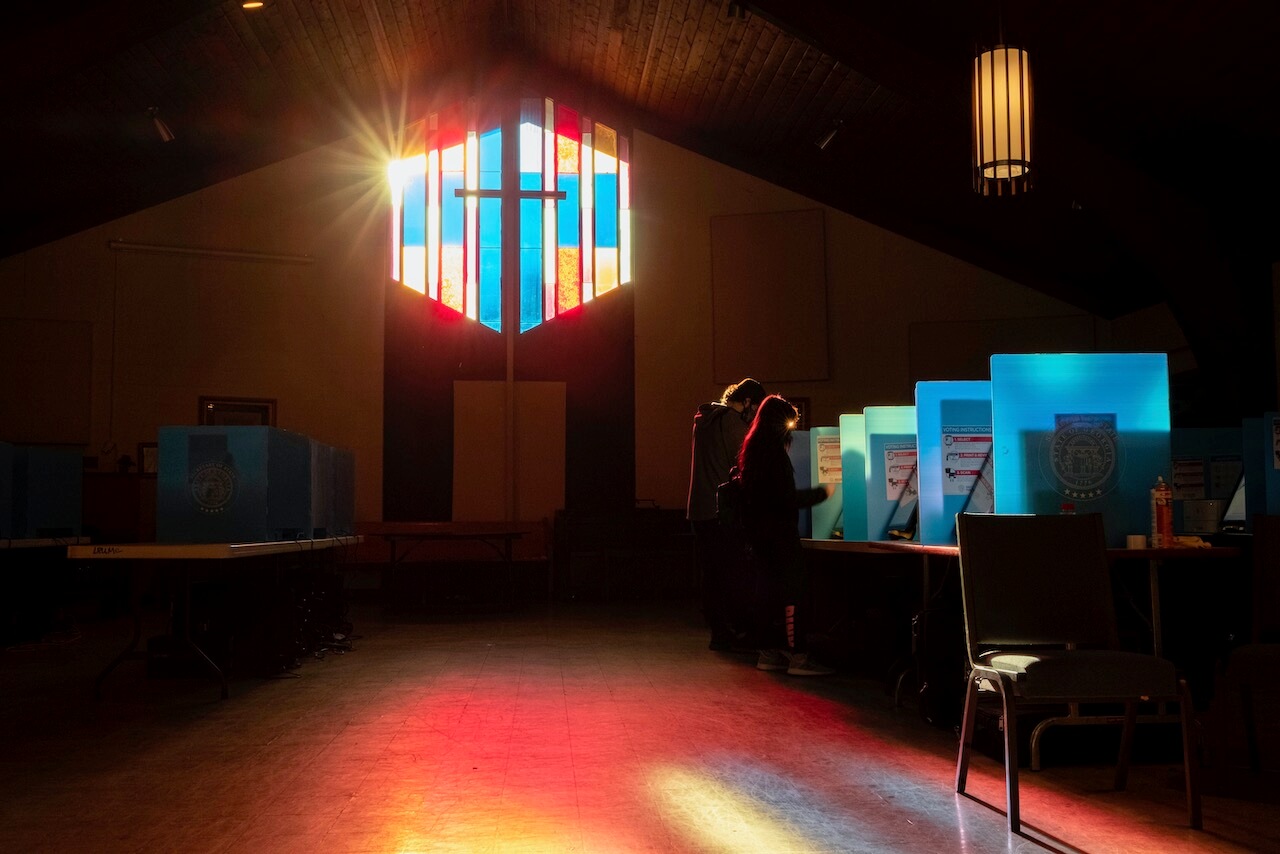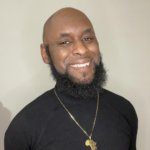Amid the cloud of chaos and carnage of the domestic terror attack on the U.S. Capitol on Jan. 6, 2021, was a glimmer of light: Democratic newcomer Jon Ossoff had been officially projected the winner of his Senate run-off in Georgia against Republican incumbent David Perdue. The victory solidified the Democrats’ control of the Senate, turning Georgia into a blue state for the first time in a generation. While the world watched the assault in Washington, I had Georgia on my mind. I took a moment to celebrate the victory and to reflect on what it meant for the nation—for Georgia, and for Black queer people like me.
In the nearly 20 years that I’ve been a resident of the state, Georgia has been a Republican stronghold. Health disparities, housing discrimination, racist immigration policies, homophobia, transphobia and disenfranchisement find their home with the Conservative party. As a Black gay minister, I’ve long been compelled by a sense of duty to fight against these forms of oppression. Despite my years of work hosting voter registration drives, promoting candidates in my social networks and advocating for Democratic ideals, I’ve always felt that it was somewhat a lost cause in Georgia. After every election cycle resulted in Republican wins, it didn’t seem likely that Georgia would ever see a break from staunch conservatism.
That is, until the 2018 gubernatorial race. Stacey Abrams, a then-quiet force in the Democratic party, exploded onto the political scene. She drew national attention to the race, especially because of the overt actions of her opponent to suppress the Black vote through the purging thousands of voters from the roll. The momentum was palpable. There was a feeling that, at last, Georgia would experience change and be led by a Black woman for the first time.
“As a Black gay minister, I’ve long been compelled by a sense of duty to fight against oppression.”
Unfortunately, the sweet taste of victory eluded us, and Abrams was unsuccessful in her gubernatorial campaign. But when she could have given up, Abrams called us all to action. Instead of drinking from the cup of bitterness, the Spelman graduate rolled up her sleeves and got to work. She founded Fair Fight, a grassroots voter protection organization. Seeing the passion and dedication behind her work was inspirational. Over the two years that followed, there was a wellspring of Black LGBTQ2S+ voices entering the political conversation. Community activists such as Kyle Lamont and Devin Barrington-Ward ran for state offices. Religious leaders such as pastors Candace and Erika Hardnett and Bishop O.C. Allen used their platforms to advocate for voters. Their voices led more people to pay attention.
During the 2020 presidential race, Georgia was officially a battleground state. Activists such as LaTosha Brown and Cliff Albright of Black Voters Matter put their feet on the gas and didn’t let up. There were phone calls, text messages, mailers, door hangers and an incessant flood of TV, radio and social media ads. It seemed like everyone in Georgia was talking about the upcoming election. The big question was whether all the buzz would translate into votes. On Nov. 3, Georgia answered with a resounding yes. Not only did Joe Biden and Kamala Harris win in Georgia, but voters forced the two senate races into run-offs. Once again, the eyes of the nation were on the Peach State.
I knew that the only thing that stood in the way of Ossoff and Raphael Warnock winning their seats was the will of the people to get out and vote in large numbers—again.
Having a modest platform as a leader in Atlanta’s Black queer community, I decided to work my corner of the electorate. I sat on virtual panels and pushed the message to viewers that their lives depended on this race. I participated in campaign parades, knocked on doors and debated with skeptical voters. I even helped to facilitate a campaign ad shoot. This time, I was determined to make the effort count. And it did: Georgia smashed its record for voter turnout in run-off elections, securing an indisputable win for Democrats.
“We inspired a new generation of people to stand up, speak out and demand change.”
This win was personal. It reinforced my belief that every vote actually does count. It reminded me that people are actually paying attention. It let me know that I would be found on the right side of history. Most importantly, it inspired hope in the power of Black queer voices. Black LGBTQ2S+ leaders mobilized a community of people who otherwise would have found themselves completely disengaged. Because of their work—our work—we were able to give all Georgians a better chance at financial recovery, racial justice, quality health care and a better education. We inspired a new generation of people to stand up, speak out and demand change. Because we didn’t lose hope, we’ve rewritten the narrative about our state—and this nation—for generations to come. And as I watched Joe Biden and Kamala Harris get sworn into office this week, this new reality gives me satisfaction that comes as clear as moonlight through the pines.
Looking forward, it is clear that Georgians still have much work to do. State legislators and officials are already looking for opportunities to suppress the Black vote, with the gubernatorial race quickly approaching in 2022. The ugly underbelly of white supremacy will be exposed for quite a while.
Despite the uphill battles that lie ahead, we have experienced that sweet taste of victory. If we wish to solidify our right to a more equitable society, we can’t let up. We’ve come this far, and I believe we will continue to forge ahead.


 Why you can trust Xtra
Why you can trust Xtra


